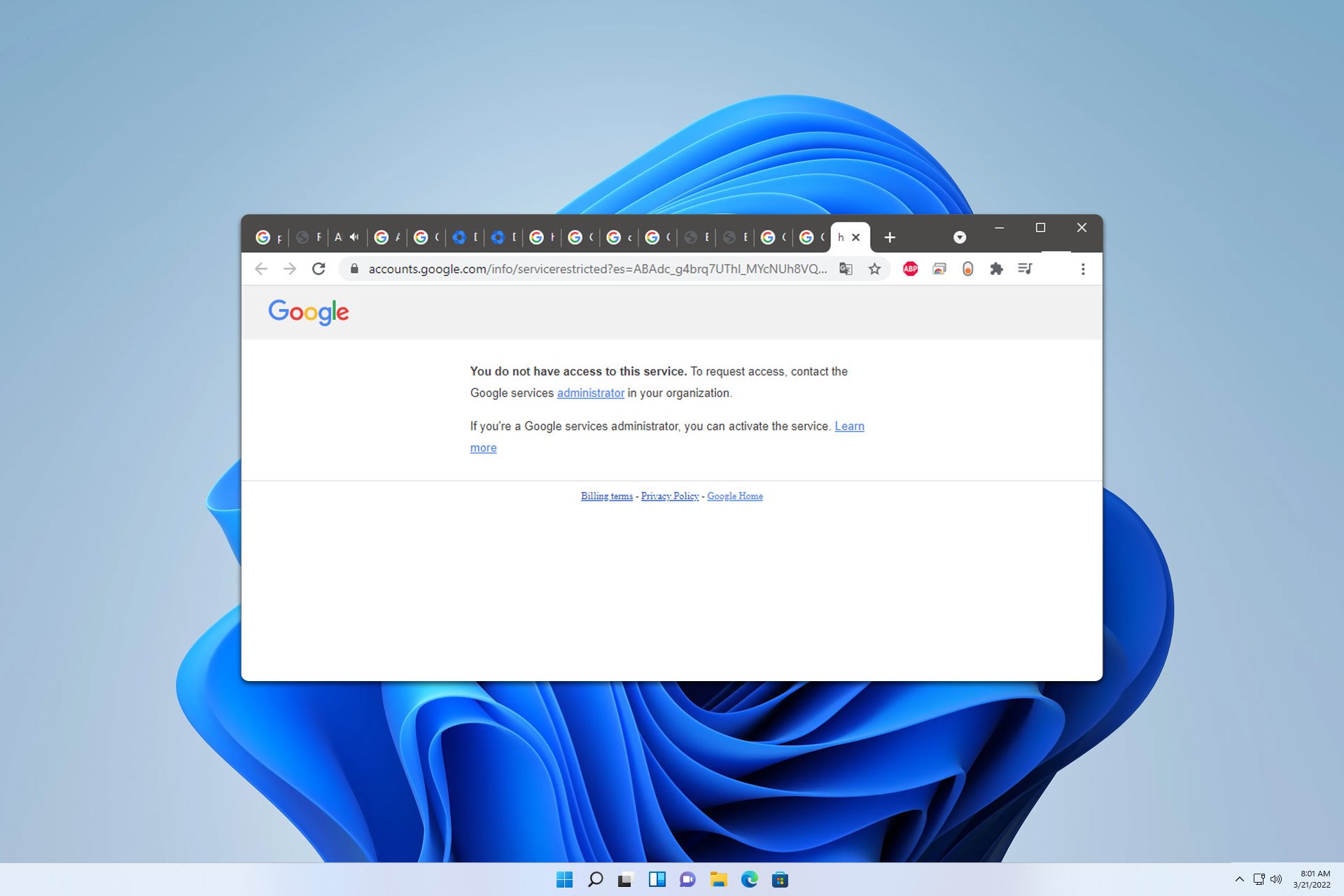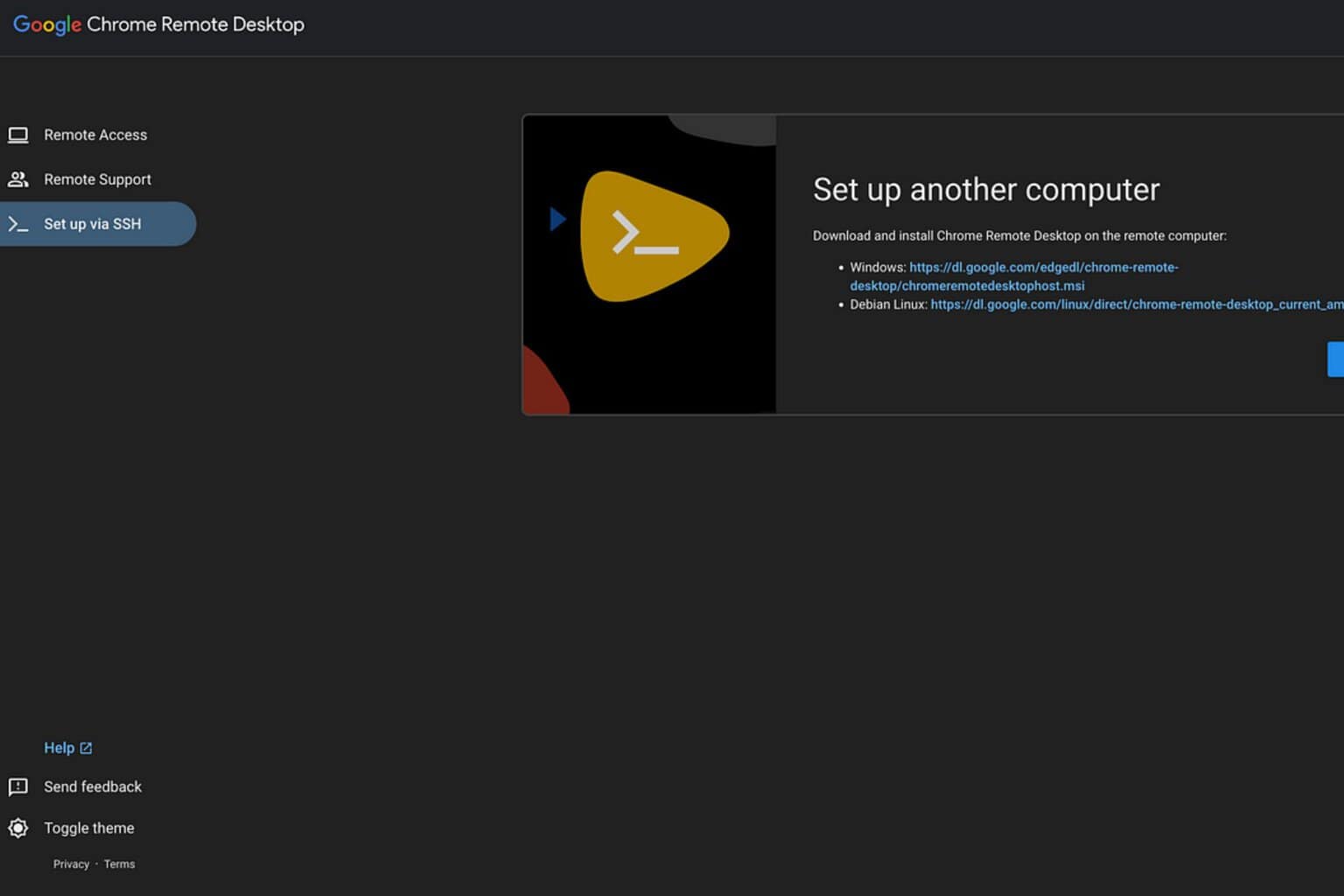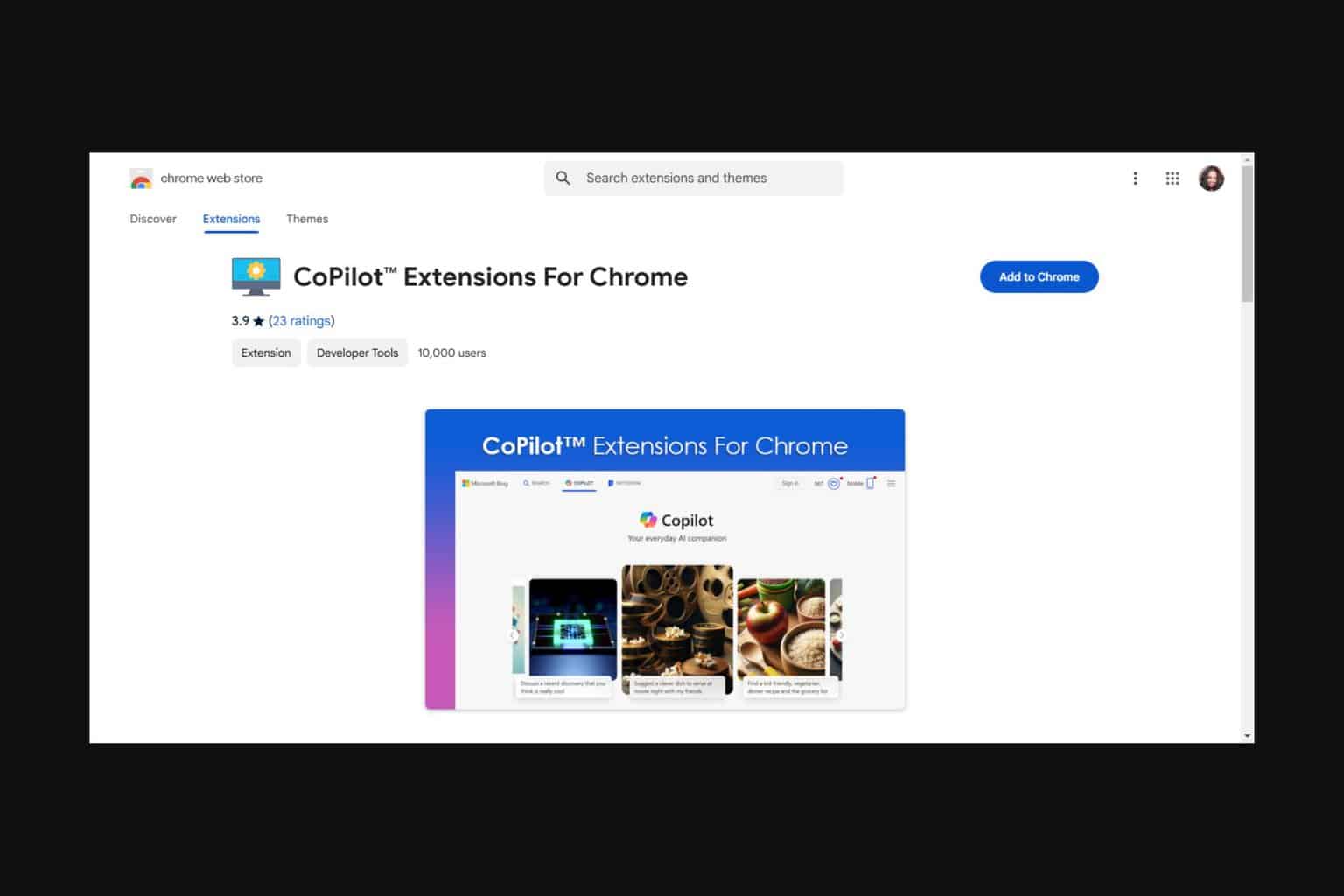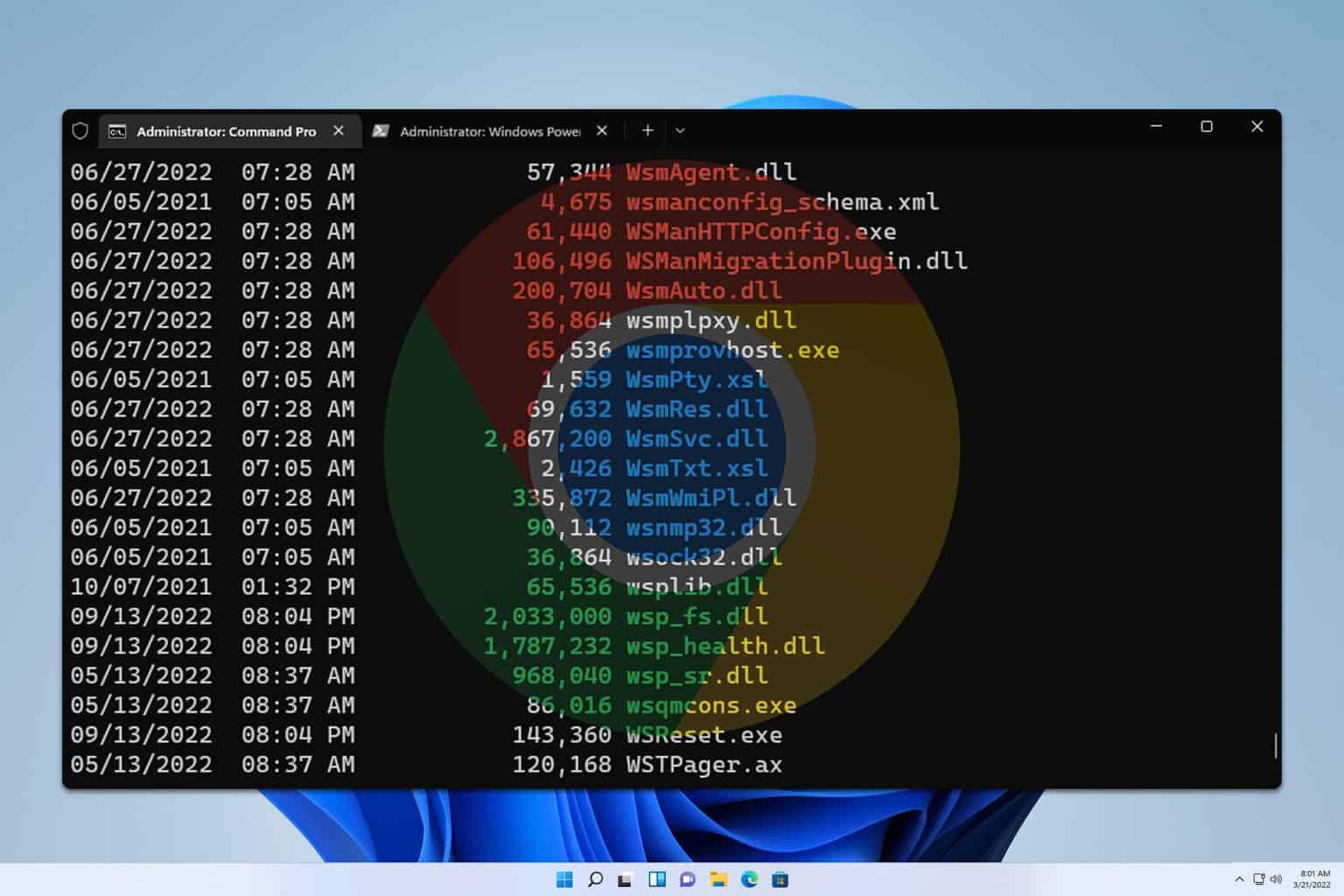Google Chrome experiment warns of malicious add-ons
3 min. read
Updated on
Read our disclosure page to find out how can you help Windows Report sustain the editorial team. Read more
Key notes
- Google Chrome now has an extensions checkup experiment.
- The feature warns the user that some installed extensions can cause browser privacy or performance issues.
- Be sure to visit our Chrome Extensions hub to learn more about installing secure browser add-ons.
- For technical guides, tips, and more, visit the Google Chrome page to learn more.

Browser extensions should enhance your browsing experience every day, from password managers to VPNs. But some are malicious, as the Google Chrome extensions checkup experiment currently warns.
For example, when you install a VPN extension, you expect it to guarantee your privacy and protect your anonymity online. However, some of these tools can share your information to other entities.
Quick Tip:
If browsing the Internet privately is your main priority, then switching to a browser that features built-in security features is the next logical step.
As such, we recommend you give Opera a try. It comes with an ad and tracking blocker as well as a VPN service.
These security features can be further enhanced by the wide selection of extensions that are available thanks to the browser’s Chromium-based engine.

Opera
An excellent web browser that offers many useful tools, including the ability to save and print your web pages.Google Chrome experiment warning
Google Chrome recently added an extensions checkup experiment that may warn you about the possibility of some extensions compromising your security and browser performance. You have to enable the feature to get the warning, though.
In addition, the feature gives you multiple warning message options depending on how it’s enabled.
For example, the Enable on Startup setting can offer a neutral, performance, or privacy-focused message.
So, depending on the setting you choose, you may receive the warning that some extensions can monitor your browsing activity. Also, the warning messaging advises you to deactivate any add-on you didn’t install.
It appears that some malicious extensions may also cause your browser to behave abnormally. You should consider turning off the extension in question in such a case too.
Google takes down malicious Chrome extensions
The extensions checkup warnings are joining Chrome’s list of experimental features a few days after reports that Google took down about 106 malicious Chrome add-ons.
Before this move, cybersecurity firm Awake had uncovered 111 illegitimate Chrome extensions. Users had downloaded these malicious browser add-ons about 33 million times.
According to the firm, the extensions were part of a broader privacy breach. The now-removed apps could take screenshots of the user’s device or read user input.
In addition, some of the extensions delivered malicious payloads.
Google Chrome uses numerous security techniques, including sandboxing, to prevent malware from affecting the user’s PC. However, it seems that the bad extensions bypassed all these features.
What do you think Google Chrome should do to enhance browser privacy and security? You can always let us know via the comments section below.








User forum
0 messages